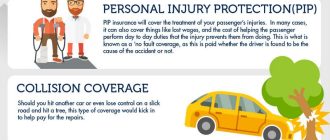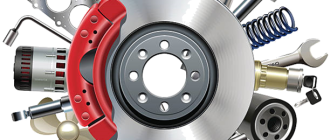
Do I Have to Use the Body Shop My Insurance Recommends?
When it comes to car insurance claims, one of the common questions that many policyholders ask is whether they have to use the body shop recommended by their insurance company. The short answer is no, you have the right to choose where to have your vehicle repaired. But there are some important factors to consider before making a decision.
The insurance company may recommend a particular body shop because they have a preferred network of repair shops. These shops have pre-negotiated labor rates and parts pricing, which can streamline the claims process. However, it’s important to remember that the insurance company’s recommendation is just that – a recommendation. You are under no obligation to use the recommended body shop.
It’s your vehicle, and you have the right to decide where it gets repaired. You may have a trusted mechanic or body shop that you prefer to use, or you may want to do some research and find a shop with good reviews and a track record of quality repairs. Ultimately, the choice is up to you.
Do I Have to Use the Body Shop My Insurance Recommends?
If you have been involved in an accident and need to get your car repaired, your insurance company may suggest a body shop for you to use. However, you may be wondering if you are required to use the recommended body shop or if you have the freedom to choose your own.
The short answer is that you are not legally obligated to use the body shop that your insurance company recommends. Your insurance policy may have a provision that requires you to use a certain body shop, but this is not common. Most insurance policies give you the freedom to choose where you want to get your car repaired.
There are a few reasons why your insurance company may recommend a specific body shop. One reason is that they have a partnership or agreement with the body shop, which means that the insurance company can get discounted rates or certain perks when they send their customers there. Another reason is that the body shop meets certain quality standards set by the insurance company.
It’s important to note that while you have the freedom to choose your own body shop, there may be some consequences if you choose to go against your insurance company’s recommendation. For example, if you choose a different body shop, your insurance company may not cover the full cost of repairs or they may require you to pay a higher deductible. They may also make the claims process more difficult or deny your claim altogether.
If you are unsure about whether or not to use the recommended body shop, it’s a good idea to consult with your insurance company. They can answer any questions you may have and provide you with more information about the benefits and drawbacks of using their recommended body shop.
In conclusion, while you do not have to use the body shop that your insurance company recommends, there may be consequences if you choose to go against their recommendation. It’s important to weigh the benefits and drawbacks before making a decision.
Understanding Your Insurance Policy
When it comes to car insurance, it’s important to understand your policy in order to make informed decisions. One decision you might face is whether or not to use the body shop recommended by your insurance.
Insurance companies often have relationships with certain body shops, and they may recommend using one of these shops for repairs. However, it is important to note that you do not have to use the body shop your insurance company recommends. You have the right to choose where you want to have your car repaired.
Before making a decision, it is recommended that you do your research. Evaluate the reputation and quality of work of the body shop recommended by your insurance company. Consider factors such as customer reviews, certifications, and warranties offered.
Additionally, you can reach out to other body shops in your area and get multiple estimates for the repairs. This will give you a better idea of the cost and quality of work offered by different shops.
It is also important to understand how your insurance policy works in terms of coverage for repairs. Familiarize yourself with the details of your policy, such as deductibles and limits. This will help you make a more informed decision when choosing a body shop.
In some cases, using the body shop recommended by your insurance company may have benefits. For example, the recommended shop might have a direct billing agreement with the insurance company, which can simplify the claims process for you.
Ultimately, the choice of which body shop to use is yours. It is important to weigh the pros and cons, consider your preferences and needs, and make the decision that feels right for you and your car.
Claiming Process Explained
When you have a car insurance policy and need to make a claim, it is important to understand the claiming process. Here are the steps you should follow:
- Initiate the claim: Contact your insurance company as soon as possible after the incident to start the claiming process. They will provide you with the necessary forms and information to proceed.
- Provide details: Fill out the claim forms accurately and provide all the necessary details about the incident. This includes the date, time, location, description of what happened, and any photographs or videos you may have.
- Choose a body shop: Your insurance company may recommend a body shop for repairs, but you have the right to choose where to have your car repaired. You can use the shop recommended by your insurance company or choose a different one.
- Get an estimate: Take your car to the chosen body shop and get an estimate for the repairs. Ensure that the estimate includes all the necessary repairs and any hidden damages that may not be immediately visible.
- Approval process: Your insurance company will review the estimate and either approve it or request additional information. It is important to follow up to ensure timely approval.
- Repairs: Once the estimate is approved, the body shop will proceed with the repairs. Keep in mind that you may need to pay the deductible amount before the repairs begin.
- Quality control: After the repairs are completed, inspect your car thoroughly to ensure that the work has been done to your satisfaction. If there are any issues, notify your insurance company and the body shop immediately.
- Payment: In most cases, the insurance company will pay the body shop directly for the repairs. However, if you pay out of pocket initially, you can submit the receipts for reimbursement.
It is important to keep all documentation related to the claiming process and communicate regularly with your insurance company and the body shop. This will help ensure a smooth and efficient resolution to your claim.
Choosing Your Preferred Body Shop
When it comes to repairing your vehicle after an accident, you may be wondering, “Do I have to use the body shop my insurance recommends?” The answer is no, you do not have to use the body shop that your insurance company suggests.
As the policyholder, you have the right to choose the body shop that you trust and feel comfortable with. It is important to remember that the decision should be based on your preferences and not solely on the insurance company’s recommendation.
Why should I choose my preferred body shop?
There are several reasons why you might want to choose your preferred body shop:
- Quality of work: You want to ensure that the repairs done on your vehicle are of the highest quality. By choosing a body shop that you trust, you can have peace of mind knowing that skilled professionals will handle the repairs.
- Customer service: Your preferred body shop is familiar with your needs and preferences. They will provide personalized customer service and ensure that all your questions and concerns are addressed.
- Convenience: The insurance-recommended body shop may not be located near your home or workplace. By choosing your preferred body shop, you can save time and minimize inconvenience by selecting a location that is convenient for you.
What do I need to do when choosing my preferred body shop?
- Research your options: Use online resources, ask for recommendations from friends or family, and read reviews to find reputable body shops in your area.
- Contact the body shops: Call or visit the body shops you are considering to inquire about their services, expertise, and approach to repairs. Ask for a written estimate, including parts, labor, and any additional charges.
- Compare estimates: Review the estimates, considering factors such as price, warranty, and the reputation of the body shop. Take your time to make an informed decision.
- Inform your insurance company: Once you have chosen your preferred body shop, inform your insurance company about your decision. They will provide you with further instructions on how to proceed, such as submitting the estimate for approval.
In summary, while your insurance company may recommend a body shop, you have the right to choose your preferred one. Consider factors such as quality of work, customer service, and convenience when making your decision. Take the time to research and compare options before informing your insurance company of your choice. Remember, the choice is ultimately yours, so choose a body shop that you trust and feel comfortable with.
Pros and Cons of Preferred Shops
The Pros of Using a Preferred Body Shop:
- Convenience: When you use the body shop recommended by your insurance company, it can be more convenient because they have an established relationship with your insurance provider.
- Quick service: Preferred body shops often have a streamlined process with your insurance company, which can lead to faster service and repairs.
- Quality work: Insurance companies typically have specific requirements for their preferred shops, so you can expect the work to be of a certain standard.
- Warranty: Using a preferred shop may offer you additional warranty coverage on the repairs done to your vehicle.
The Cons of Using a Preferred Body Shop:
- Limited options: When you choose a preferred body shop, you may be limited in your choices and may not have the opportunity to shop around for the best price or service.
- Quality concerns: While insurance companies vet their preferred shops, there is still a chance that the work may not meet your expectations.
- Higher costs: Preferred body shops may have higher prices due to their relationship with the insurance company, and these costs could be passed on to you.
- Loss of control: By using a preferred shop, you may feel like you have less control over the repair process and the quality of work being done on your vehicle.
In conclusion, using a preferred body shop recommended by your insurance company can offer convenience, quicker service, and potential warranty coverage. However, it may limit your options, raise concerns about quality, increase costs, and make you feel less in control. Consider weighing these pros and cons when deciding whether to use the recommended body shop or explore other alternatives.
Quality of Workmanship
When it comes to repairing my car after an accident, I want to ensure that the job is done well and that the body shop I choose will provide high-quality workmanship. But do I have to use the body shop my insurance recommends?
The short answer is no, you do not have to use the body shop that your insurance recommends. While your insurance company may have preferred repair shops that they work with, you have the right to choose where you want to have your car repaired.
It’s important to remember that the quality of workmanship can vary between different body shops. When choosing a body shop, you should consider factors such as their reputation, experience, and certifications. Look for a shop that has positive reviews and feedback from previous customers.
In addition to reviews, certifications can also indicate the quality of workmanship a body shop provides. Look for shops that are certified by reputable organizations, such as the National Institute for Automotive Service Excellence (ASE) or the Inter-Industry Conference on Auto Collision Repair (I-CAR).
Another way to gauge the quality of workmanship is by asking the body shop for examples of their previous work. Many reputable shops will have a portfolio of before-and-after photos or customer testimonials that they can show you, giving you an idea of the results you can expect.
Ultimately, the choice of body shop is yours to make. While it’s important to work with your insurance company to understand your coverage and any potential benefits of using their recommended shop, you should feel confident in your decision and choose a body shop that you trust to provide the quality of workmanship that you deserve.
Additional Costs and Expenses
When it comes to repairing your vehicle after an accident, there may be additional costs and expenses that you need to consider. While your insurance may cover the majority of the repairs, there are some situations where you may be responsible for paying out of pocket.
One of the main factors that can contribute to additional costs is the type of body shop you choose to use. While your insurance may recommend a specific body shop, you are not obligated to use it. However, it is important to note that if you choose to use a different body shop, there may be additional costs that your insurance will not cover.
For example, if you choose to use a body shop that charges higher rates than the one recommended by your insurance, you may be responsible for paying the difference. Additionally, some body shops may use higher quality parts or offer additional services that come at an extra cost.
Another potential additional cost to consider is the rental car expenses. If your vehicle is not drivable after an accident, your insurance may cover the cost of a rental car while your car is being repaired. However, there may be limitations on the duration or type of rental car that is covered, which could result in additional expenses if you exceed those limitations.
Furthermore, there may be additional expenses related to towing or storage fees if your vehicle needs to be transported to a body shop or stored at a facility while waiting for repairs. These costs may or may not be covered by your insurance, so it is important to review your policy to understand what is included.
In summary, while you have the choice to use a body shop recommended by your insurance or a different one, it is important to consider any potential additional costs and expenses that may arise. Reviewing your policy, understanding the terms and limitations, and discussing your options with your insurance provider can help you make an informed decision.
Warranty and Guarantees
When it comes to getting your vehicle repaired after an accident, you may be wondering if you have to use the body shop that your insurance company recommends. While many insurance companies have preferred body shops that they work with, it is important to understand that you have the right to choose where you get your vehicle repaired.
However, it is important to consider the warranty and guarantees offered by the body shop you choose. Different body shops may offer different warranty periods and coverage, so it is essential to do your research before making a decision.
Here are some factors to consider when reviewing the warranty and guarantees offered by a body shop:
- Length of warranty: How long does the warranty last? Some body shops may offer a lifetime warranty on their repairs, while others may offer a shorter warranty period.
- Coverage: What is covered under the warranty? Make sure to read the fine print and understand what parts and repairs are included in the warranty.
- Transferability: Is the warranty transferable if you sell your vehicle? This could be an important factor to consider if you plan on selling your car in the future.

Additionally, it is important to ask the body shop about any guarantees they offer. Guarantees may cover things like the quality of the repair work, the paint job, or other specific aspects of the repair. Make sure to ask about any guarantees and get them in writing.
Ultimately, while you have the right to choose the body shop you use, it is important to carefully consider the warranty and guarantees offered by the shop. This will help ensure that you are satisfied with the repairs and have peace of mind knowing that you are protected in case anything goes wrong.
The Importance of Repair Certifications
When it comes to repairing your vehicle after an accident, it is crucial to choose a shop that has the proper certifications. This ensures that the technicians working on your car have the necessary skills and expertise to perform high-quality repairs. In addition, using a certified body shop can help protect your warranty and ensure that your car maintains its value.
What are repair certifications?
Repair certifications are credentials that are awarded to body shops and technicians who have completed specific training programs. These programs cover a range of skills and knowledge, from general repair techniques to specialized training for specific vehicle makes and models. Some common certification programs include ASE (Automotive Service Excellence), I-CAR (Inter-Industry Conference on Auto Collision Repair), and OEM (Original Equipment Manufacturer) certifications.
Why are repair certifications important?
Using a certified body shop guarantees that the technicians working on your vehicle have received proper training and have demonstrated their competence in the field. This gives you peace of mind knowing that your car is in capable hands and that the repairs will be done correctly.
In addition, using a certified body shop can help protect your warranty. Many vehicle manufacturers require repairs to be done by certified technicians in order to maintain the warranty coverage. If you choose a non-certified shop, it may void your warranty and leave you responsible for any future repairs.
Furthermore, using a certified body shop can help maintain the value of your car. When it comes time to sell or trade in your vehicle, buyers or dealerships may consider the repair history. If your car has been repaired by certified technicians, it shows that the repairs have been done to a high standard, increasing its value.
How can I check if a body shop is certified?
There are several ways to verify if a body shop is certified. You can ask the shop directly about their certifications or look for certification logos displayed on their premises. Additionally, you can check with the certifying organizations and online directories to confirm the shop’s credentials.
Conclusion
Choosing a certified body shop is essential for ensuring the quality of repairs done to your vehicle. It provides you with peace of mind, protects your warranty, and helps maintain the value of your car. So, the next time you need to have your car repaired, be sure to do your research and select a shop that has the necessary repair certifications.
Insurance Company Recommendations
When it comes to car repairs after an accident, your insurance company may recommend a specific body shop for you to use. However, it’s important to remember that these recommendations are just that – recommendations. You are not legally obligated to use the body shop that your insurance company suggests.
It’s understandable that you may feel pressured to use the body shop recommended by your insurance company. After all, they may offer perks such as streamlined communication with the insurance adjuster, direct billing to your insurance company, or even a warranty on the repairs. However, it’s important to remember that ultimately, the choice is yours.
Before deciding whether or not to use the recommended body shop, consider the following:
- Quality of Work: Do some research and read reviews to ensure that the recommended shop has a good reputation for quality work. Ultimately, you want your car to be repaired properly.
- Cost: Get estimates from multiple body shops, including the recommended shop, to compare prices. Keep in mind that your insurance company may have agreements with certain shops that result in preferential pricing.
- Convenience: Consider the location and convenience of the recommended shop. If it’s too far from your home or work, it may not be the most convenient option for you.
Remember, it’s your car and your choice. While your insurance company’s recommendation may be convenient, it’s important to weigh your options and choose a body shop that you trust to repair your vehicle properly. If you decide to use a different body shop, make sure to inform your insurance company and follow their instructions for submitting a claim.
Your Insurance Guide
When it comes to auto insurance, it’s important to understand your options and make informed decisions. One of the decisions you may face is whether or not to use the body shop recommended by your insurance company.
While your insurance company may suggest a specific body shop, you are not obligated to use it. It’s ultimately your choice where you have your vehicle repaired.
Here are some things to consider when deciding whether to use the recommended body shop:
- Quality of work: Take the time to research the reputation of the recommended body shop. Read reviews and ask for recommendations from trusted friends or family members.
- Convenience: Consider the location and hours of operation of the recommended body shop. Is it convenient for you to drop off and pick up your vehicle?
- Cost: Get estimates from multiple body shops, including the recommended one. Compare prices to ensure you are getting a fair deal.
- Warranty: Find out what kind of warranty the recommended body shop offers on their repairs. Will they stand behind their work?
If you choose not to use the recommended body shop, keep in mind that your insurance company may not cover the full cost of repairs from an alternative shop. You may be responsible for paying the difference.
Ultimately, the decision is yours to make. Consider your options and choose the body shop that best meets your needs and preferences. After all, it’s your vehicle and you deserve to have it repaired by a trusted professional.
Tips for Dealing with Insurance Companies
When it comes to dealing with insurance companies, there are several important tips to keep in mind. Whether you need to file a claim or simply have questions about your coverage, these tips can help you navigate the process:
- Do your research: Before contacting your insurance company, it’s important to educate yourself about your policy and coverage. This will help you understand your rights and responsibilities, and allow you to ask informed questions.
- Use the resources available to you: Many insurance companies provide online portals or mobile apps that make it easy to file claims, check your coverage, and communicate with customer service. Take advantage of these tools to streamline the process.
- Get organized: Keep all documentation related to your insurance policy in one place. This includes your policy documents, correspondence with the insurance company, and any receipts or estimates for repairs or medical expenses.
- Document everything: When communicating with your insurance company, be sure to keep detailed records. Take notes of phone conversations, including the date, time, and the name of the person you spoke with. If you send emails or letters, keep copies as well.
- Be persistent: Insurance claims can sometimes be a lengthy process, so don’t be afraid to follow up regularly. Stay proactive and keep the lines of communication open to ensure your claim moves forward.
- Consider seeking professional help: If you’re dealing with a complex claim or feel overwhelmed by the process, it may be worth consulting with an attorney or public adjuster who specializes in insurance claims. They can provide guidance and advocate on your behalf.
Remember, insurance companies are in the business of making money, so it’s important to be proactive and advocate for yourself when dealing with them. By following these tips, you can navigate the insurance process more confidently and ensure that you receive the coverage you deserve.
Understanding Your Coverage Options
When it comes to choosing a body shop for repairs, you may wonder if you have to use the one recommended by your insurance company. The answer is no, you are not required to use the body shop recommended by your insurance. However, there are some factors you should consider before making a decision.
If you decide not to use the recommended body shop, you may have to pay out of pocket for the repairs initially. Depending on your insurance policy, you may be able to submit the receipts to your insurance company for reimbursement. It’s important to check with your insurance provider to understand the specific requirements and process for reimbursement.
Choosing a body shop that is not recommended by your insurance may also affect the amount of coverage you receive. Some insurance policies have limitations on the amount they will cover for repairs done at non-recommended body shops. It’s important to review your policy carefully to understand the coverage limitations.
When choosing a body shop, consider factors such as their reputation, experience, and the quality of their work. Ask for recommendations from friends or family members who have had similar repairs done. Research online reviews and ratings to get a sense of the body shop’s reputation. Additionally, consider visiting the body shop in person to assess their facilities and talk to the technicians.
Ultimately, the decision of whether to use the recommended body shop or not is up to you. It’s important to weigh the pros and cons and make an informed decision based on your specific situation and coverage options. By understanding your coverage options and the potential implications of choosing a different body shop, you can make the right choice for your car repairs.
Choosing the Right Insurance Company
When it comes to insurance, it’s important to choose the right company to meet your needs. With so many options available, it can be overwhelming to decide which insurance company is the best fit for you. Here are a few key factors to consider:
- Coverage Options: Does the insurance company offer the coverage that you need? Make sure to review their policy options and see if they align with your requirements.
- Financial Stability: It’s crucial to select an insurance company that has a strong financial standing. This ensures that they will be able to fulfill their obligations in case of a claim.
- Customer Service: Good customer service is essential when dealing with insurance matters. Look for a company that is responsive, reliable, and provides excellent support to its policyholders.
- Claims Process: Consider the ease and efficiency of the claims process. Read reviews or ask for recommendations from friends or family to determine if the company handles claims promptly and fairly.
- Reputation: A company’s reputation can say a lot about its reliability and trustworthiness. Research the insurance company’s history, read customer reviews, and check their ratings from independent agencies.
By carefully considering these factors, you can make an informed decision when choosing an insurance company. Remember, it’s important to do your own research and choose a company that aligns with your specific needs and preferences.
FAQ:
Can I choose my own body shop if my insurance recommends one?
Yes, you have the right to choose your own body shop, even if your insurance company recommends one. It’s important to remember that the choice is ultimately up to you, and you should feel comfortable with the repair shop you select.
What if the body shop my insurance recommends is far from my home?
If the recommended body shop is not convenient for you, you can ask your insurance company for other options closer to your home. They should be able to provide you with a list of approved repair facilities in your area.
Does using the body shop recommended by my insurance affect the quality of the repairs?
Not necessarily. Insurance-recommended body shops are often reputable and capable of performing high-quality repairs. However, it’s always a good idea to do some research and read reviews before making a decision. You can also ask for recommendations from friends or family who have had similar repairs done.
Will my insurance cover the expenses if I choose a different body shop?
Yes, your insurance should cover the cost of repairs regardless of the body shop you choose. However, it’s important to check with your insurance company to ensure that the shop you select is an approved facility and that the repairs will be covered under your policy.
What should I do if I have a bad experience with the body shop my insurance recommended?
If you have a negative experience with the recommended body shop, you should contact your insurance company and express your concerns. They may be able to assist you in resolving any issues or finding a different repair facility. It’s important to communicate your dissatisfaction so that the insurance company can address the problem.
Can I choose any body shop I want?
Yes, you have the right to choose any body shop you want to repair your vehicle. Your insurance company may provide you with recommendations, but you are not obligated to use their preferred shop.
Why does my insurance recommend a specific body shop?
Insurance companies may have agreements or partnerships with certain body shops. They may recommend these shops because they have negotiated discounts or they trust the quality of work done by these shops. However, it’s ultimately your decision whether to use their recommended shop or go elsewhere.





